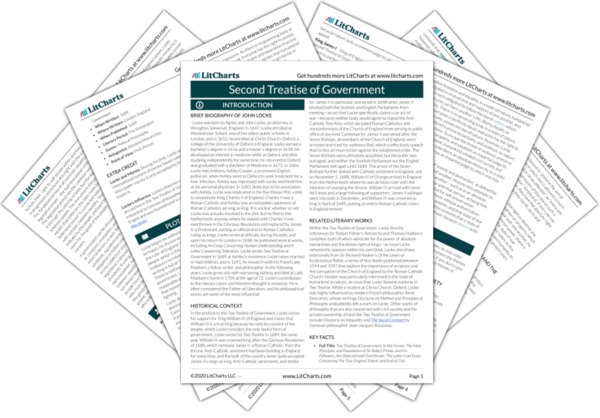State of War Quotes in Second Treatise of Government
And here we have the plain difference between the state of nature and the state of war, which however some men have confounded, are as far distant, as a state of peace, good will, mutual assistance and preservation, and a state of enmity, malice, violence and mutual destruction, are one from another. Men living together according to reason, without a common superior on earth, with authority to judge between them, is properly the state of nature.
That the aggressor, who puts himself into the state of war with another, and unjustly invades another man's right, can, by such an unjust war, never come to have a right over the conquered, will be easily agreed by all men, who will not think, that robbers and pyrates have a right of empire over whomsoever they have force enough to master; or that men are bound by promises, which unlawful force extorts from them.
He that will with any clearness speak of the dissolution of government, ought in the first place to distinguish between the dissolution of the society and the dissolution of the government. That which makes the community, and brings men out of the loose state of nature, into one politic society, is the agreement which every one has with the rest to incorporate, and act as one body, and so be one distinct common-wealth. The usual, and almost only way whereby this union is dissolved, is the inroad of foreign force making a conquest upon them: for in that case, (not being able to maintain and support themselves, as one intire and independent body) the union belonging to that body which consisted therein, must necessarily cease, and so every one return to the state he was in before, with a liberty to shift for himself, and provide for his own safety, as he thinks fit, in some other society. Whenever the society is dissolved, it is certain the government of that society cannot remain.












